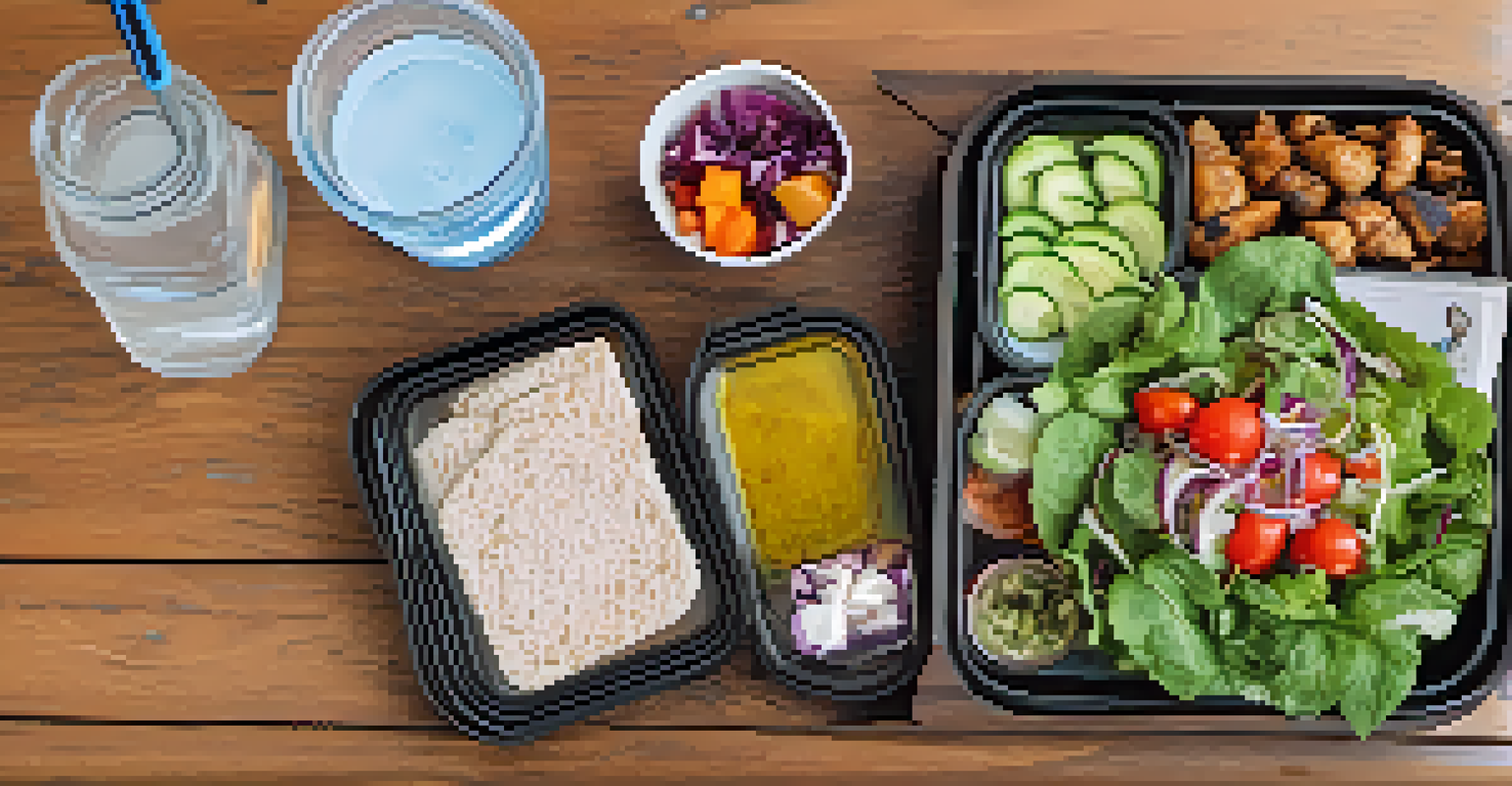Understanding Travel-related Gastrointestinal Issues

What Causes Gastrointestinal Issues While Traveling?
Traveling can disrupt your routine, affecting your digestive system. Whether it's trying new foods or adjusting to different time zones, your gut may react negatively. Stress is another factor; the excitement of travel can sometimes lead to anxiety, which can upset your stomach.
Traveling tends to magnify all the issues that we have at home, including our health.
Additionally, exposure to unfamiliar bacteria and viruses in different regions can lead to gastrointestinal distress. For instance, street food in a new city might be delicious but could also introduce pathogens your body isn't used to. It's important to be mindful of your food choices while exploring.
Lastly, changes in hydration levels, particularly when flying, can also contribute to GI issues. Air travel often dehydrates you, which can lead to constipation and other digestive problems. Staying hydrated is key to keeping your gut happy on the road.
Common Symptoms of Travel-related GI Problems
When your digestive system is upset, it tends to speak to you in various ways. Common symptoms include diarrhea, nausea, abdominal cramps, and bloating. These signs can range from mild to severe, depending on the underlying cause.

Diarrhea is perhaps the most recognized symptom of travel-related GI issues, often colloquially referred to as 'traveler's diarrhea.' This discomfort can strike unexpectedly, making it essential to know how to manage it while on the go. Staying near a restroom can become a priority!
Travel Disrupts Digestive Routine
Changes in environment, food, and hydration can lead to gastrointestinal issues while traveling.
Nausea and vomiting can also occur, especially if your body isn't accustomed to new foods or if you have motion sickness. Recognizing these symptoms early can help you adjust your travel plans or seek medical attention if necessary.
Prevention: How to Keep Your Gut Healthy While Traveling
Preventing gastrointestinal issues while traveling starts with being mindful of what you eat. Opt for freshly cooked meals and avoid street food that has been sitting out for too long. Your body will thank you for sticking to safer food choices.
The greatest part of a road trip isn't arriving at your destination; it's all the wild stuff that happens along the way.
Another key aspect is hydration. Drinking plenty of water can help prevent constipation and keep your digestion running smoothly. Just be cautious about the water source; in some countries, it's advisable to stick to bottled water to avoid contamination.
Finally, listen to your body. If something doesn't sit well, don't hesitate to skip a meal or take a break. Your health is the top priority, and sometimes it's better to miss out on a food experience than to suffer the consequences later.
When to Seek Medical Attention for GI Issues
Not all gastrointestinal issues require a visit to a doctor, but knowing when to seek help is crucial. If your symptoms persist for more than a couple of days, it’s a good idea to consult a healthcare professional. Prolonged symptoms can indicate a more serious infection.
Additionally, if you experience severe dehydration, high fever, or blood in your stool, seek medical attention immediately. These conditions can quickly escalate, especially when you're away from home.
Recognize GI Symptoms Early
Common symptoms like diarrhea and nausea can indicate travel-related GI problems that may require attention.
It's also helpful to locate nearby medical facilities before your trip. Having a plan in place can save you time and stress should you need assistance during your travels.
Natural Remedies for Travel-related GI Disturbances
If you find yourself facing mild gastrointestinal issues while traveling, natural remedies can provide relief. Ginger tea, for instance, is known for its anti-nausea properties and can be soothing for an upset stomach. Sipping on ginger ale or chewing ginger candies can also help.
Peppermint is another effective remedy. Whether in tea or oil form, peppermint can help ease bloating and cramping. Carrying peppermint tea bags in your travel kit can be a simple way to find relief when needed.
Additionally, probiotics can support gut health. Taking probiotic supplements before and during your trip can help maintain a healthy balance of gut bacteria, potentially preventing disturbances from new foods or environments.
The Role of Diet in Managing GI Problems While Traveling
Your diet plays a significant role in how your digestive system responds during travel. Incorporating fiber-rich foods, such as fruits and vegetables, can promote healthy digestion. Just be sure to wash them thoroughly if you're unsure about the water quality.
Avoiding heavy, greasy meals can also help. Opt for lighter options that are easier on your stomach, especially during long travel days. Think salads, grilled proteins, and whole grains.
Prevention is Key for Gut Health
Staying hydrated, choosing safe foods, and listening to your body can help prevent gastrointestinal issues on the road.
Lastly, consider keeping a travel journal to track what you eat and how your body reacts. This can provide insights into what foods work for you and help you make informed choices in the future.
Traveling with Pre-existing GI Conditions: Tips and Tricks
If you have a pre-existing gastrointestinal condition, extra care is needed when traveling. Always consult your doctor before your trip to discuss any necessary precautions. They may recommend specific medications or dietary adjustments tailored to your needs.
Bringing your medications and ensuring you have enough for the duration of your trip is essential. Consider packing them in your carry-on to avoid any issues with lost luggage. It's also wise to carry a doctor's note in case you need medical assistance abroad.

Lastly, research the healthcare system of your destination. Knowing where to find help can ease anxiety and prepare you for any potential issues related to your condition during your travels.